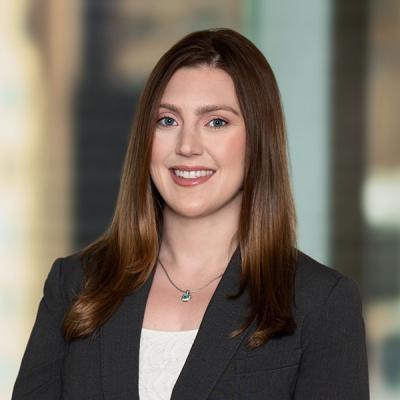New York Office of Medicaid Inspector General Proposes Regulations on Self-Disclosure Program
This post is the third and final installment of our blog series on the proposed regulations published by the New York State Office of Medicaid Inspector General (OMIG). The proposed regulations would repeal the current Part 521 - Provider Compliance Programs of Title 18 of the New York Codes, Rules and Regulations in its entirety and establish new requirements for providers to detect and prevent fraud, waste, and abuse in the Medicaid Program under a new Part 521: Fraud, Waste, and Abuse Prevention (Part 521). If enacted, the proposed rules would implement changes related to Medicaid provider compliance programs, Medicaid managed care organization (MMCO) fraud, waste, and abuse prevention, and Medicaid providers’ “obligation to report, return, and explain Medicaid overpayments through OMIG’s Self-Disclosure Program.”
New York Social Services Law Section 363-D(7) establishes a voluntary self-disclosure program, which is administered by OMIG and the Commissioner of Social Services, through which overpayments can be reported, returned, and explained. In addition, New York Social Services Law grants OMIG the authority to promulgate regulations, forms, instructions, and all other measures necessary to operate the Self-Disclosure Program. In this final post, we summarize the third subpart of Part 521 covering proposed regulations that would establish requirements under OMIG’s Self-Disclosure Program.
Scope & Definitions – Section 521-3.1 & Section 521-3.2
The regulation applies to all persons who have received an overpayment from the Medicaid program. “Persons” is defined to include providers, MMCOs, and subcontractors and network providers of MMCOs, but does not include Medicaid recipients. An “overpayment” includes any amount that Medicaid did not authorize payment of, regardless of the reason, and can include payments resulting from inaccurate or improper cost reporting, improper claiming, unacceptable practice, fraud, abuse, or mistake.
Reporting & Returning Overpayments – Section 521-3.3
In the event of an overpayment, a Self-Disclosure Statement must be submitted to OMIG by the later of sixty (60) days after the date of the overpayment’s identification of the overpayment or, if applicable, the date that a corresponding cost report is due. OMIG will toll this deadline (i) upon receiving a Self-Disclosure Statement and the deadline will remain tolled until the execution of a Self-Disclosure and Compliance Agreement (defined below), (ii) the person withdraws from the Self-Disclosure Program, (iii) the full amount of the overpayment is repaid, or (iv) OMIG terminates that person’s participation in the Self-Disclosure Program.
An overpayment is considered identified when a person “has or should have, through the exercise of reasonable diligence, determined that they have received an overpayment and quantified the amount of the overpayment.”
Self-Disclosure Program Eligibility - Section 521-3.4(b)
A person is eligible to participate in the Self-Disclosure Program if the following conditions are satisfied:
- the disclosing party is not currently under audit, investigation, or review by OMIG for the disclosed overpayment;
- OMG has not previously identified the overpayment;
- the disclosing party has complied with all overpayment reporting deadlines; and
- the disclosing party is not the subject of a criminal investigation being conducted by the New York Medicaid Fraud Control Unit or the federal government.
Following a written request, OMIG, in its discretion, can allow the following to occur:
- waive the interest on an amount of an overpayment, in whole or in part;
- allow repayment to occur in installments pursuant to a Self-Disclosure and Compliance Agreement;
- consider the reporting and returning of overpayments a mitigating factor in determining whether to pursue an administrative enforcement action; and
- consider the person’s reporting and returning of overpayments as a factor in determining whether the person has adopted and implemented a compliance program that is effective.
If OMIG determines that a person is ineligible for the Self-Disclosure Program, OMIG will provide notice in writing.
Self-Disclosure Statement - Section 521-3.4(c) and Section 521-3.4(d)
A Self-Disclosure Statement must contain the following information:
- Estimation of Overpayment: The Self-Disclosure Statement must contain both the estimated overpayment and the methodology used to arrive at the estimation.
- Explanation of Overpayment: The explanation of the overpayment shall include (i) a description and explanation of the circumstances leading to the overpayment; (ii) how the circumstances were discovered; (iii) the dates that the overpayment was received and identified; (iv) the method for calculating the overpayment; and (v) the actions taken to correct the overpayment.
The Self-Disclosure Statement must also include the person’s contact information as well as all relevant data files and indicate any requests for repayment through installment plans or the waiver of any applicable interest. In addition, the Self-Disclosure Statement must include an agreement to return the full amount of the overpayment and interest, if applicable. OMIG must acknowledge receipt and conduct a preliminary review within twenty (20) days of receiving the submission. Following the preliminary review, OMIG will either provide a notification that the submission is complete or return the submission as incomplete. If the submission is determined to be incomplete, OMIG will identify the information that is needed to render the submission complete. Once OMIG determines that a submission is complete and accepts it, OMIG will verify the overpayment amount and issue notification of that amount, as well as the instructions for repayment. An overpayment must be remitted to OMIG within fifteen (15) days of this notification.
Self-Disclosure and Compliance Agreement and Termination- Section 521-3.4(e)-(f)
A Self-Disclosure and Compliance Agreement is an agreement between OMIG and a person who agrees to repay an overpayment and related interest through installment payments and/or agrees to implement corrective action to prevent such overpayment from reoccurring. A Self-Disclosure and Compliance Agreement must include the following terms and conditions:
- an agreement to repay the amount of the overpayment and, if applicable, interest;
- a repayment schedule, if the Self-Disclosure and Compliance Agreement allows for repayment in installments; and
- identification and agreement to implement any corrective actions to address what caused the overpayment to occur.
The Self-Disclosure and Compliance Agreement must be executed and returned within fifteen (15) days of receiving it from OMIG. Failure to do so can result in terminate of participation in the Self-Disclosure Program by the OMIG. OMIG also can terminate a person’s participation in the Self-Disclosure Program immediately for attempting to defeat or evade an overpayment or for omitting material information or providing false material information in the Self-Disclosure Statement or in other communications. OMIG will give notice within five (5) business days if it terminates participation.
Looking Forward
If enacted, Part 521-3 should motivate providers and MMCOs to reexamine their protocols and practices related to overpayments. Particularly, providers and MMCOs should evaluate their existing identification procedures as OMIG will consider an overpayment identified both when it is actually identified and when it should have been identified through reasonable diligence. Failure to comply with Part 521-3 could result in monetary penalties and other sanctions. Therefore, it is critical that both providers and MMCOs understand the implications of the Self-Disclosure Program.




